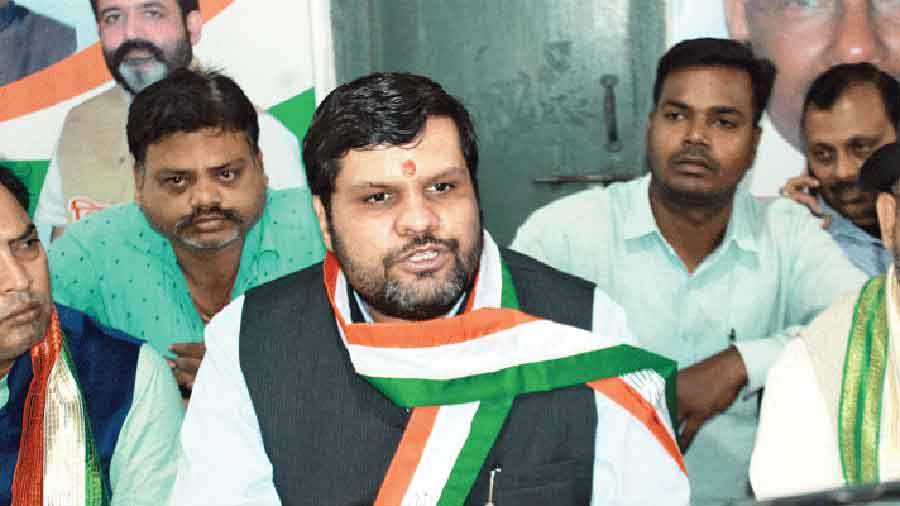The Congress on Monday yet again questioned the Narendra Modi government’s basic understanding of the economy, asserting that wrong policies were more an outcome of “misguided thinking” than “misplaced priorities”.
Responding to the fresh “stimulus package” announced by finance minister Nirmala Sitharaman on Monday, Congress spokesperson Gourav Vallabh said: “This government does not understand how the economy functions. When all the economists suggested measures to generate demand, the government offered loans. Now the wisdom has dawned on them that the demand side needs to be addressed, but they fail to offer anything substantive.”
Vallabh added: “They played havoc with the economy because of their poor understanding. It all started with demonetisation, followed by a flawed GST. They talked of a stimulus package worth Rs 20 lakh crore, which turned out to be less than Rs 2 lakh crore. All their remedies ended up hurting the economy more. Initially, the global agencies estimated the Indian economy will contract by around 3 per cent. After the much hyped Rs 20 lakh crore package, they lowered the estimate to 6 per cent and now they say the contraction will be minus 10-14 per cent.”
The party’s data analytics department chairman, Praveen Chakravarty, said: “The experts, the World Bank and the IMF are saying this is not the time to think about rating downgrade. But we are letting millions of people slip into poverty because some foreign rating agencies are blackmailing us. I thought we got independence in 1947.”
On whether the government had misplaced priorities, Chakravarty said: “No it is misguided thinking. They have no idea. They gave tax relief to the corporates… what happened? It’s all confused and muddled. We saw this for six years now. Now they are telling government employees how to spend their own money. They have done nothing for the 40-crore poor people. The Rs 20 lakh crore package did nothing, this new package will do nothing. The economy is not Modi’s cabinet, which will get stimulated by one man’s words and headline management.”
Vallabh and Chakravarty said in a joint statement: “The government employees already have leave travel allowance as part of their salary. Today, the finance minister told them that they should now spend this on goods with greater than 12 per cent GST at a GST-registered store in non-cash form. Essentially, the minister ordered government employees how to spend their own money and called it a stimulus for demand. We have been vouching for the NYAY scheme to be implemented. Only money in the hands of the people can stimulate demand.”
Arguing that the package should truly be in the form of cash in hand and not diversion of cash from one area to another, like the government has announced in case of LTC cash voucher scheme and festival advance,the statement explained, “The finance minister forgot the most basic lesson about money — it is fungible. Whether it is called LTC or festival advance, money is money for the individual... Unless there is additional money, the individual is not going to spend more. So, where is the question of a demand stimulus?”
They added, “How much more money was given to states? Rs 12,000 crore, which is a paltry 1.3 per cent of the states’ total capital expenditure budget for the financial year which is Rs 9 lakh crore. Overall, there was no extra spending to boost demand and the increase in states’ capital expenditure is paltry and untimely. A stimulus by definition means extra or additional. Did the announcements made today provide anything substantially extra or additional for the economy? The finance minister concluded by saying ‘today’s solutions should not become tomorrow’s problems’. We would like to conclude by saying — today’s problems could become tomorrow’s nightmares.”












